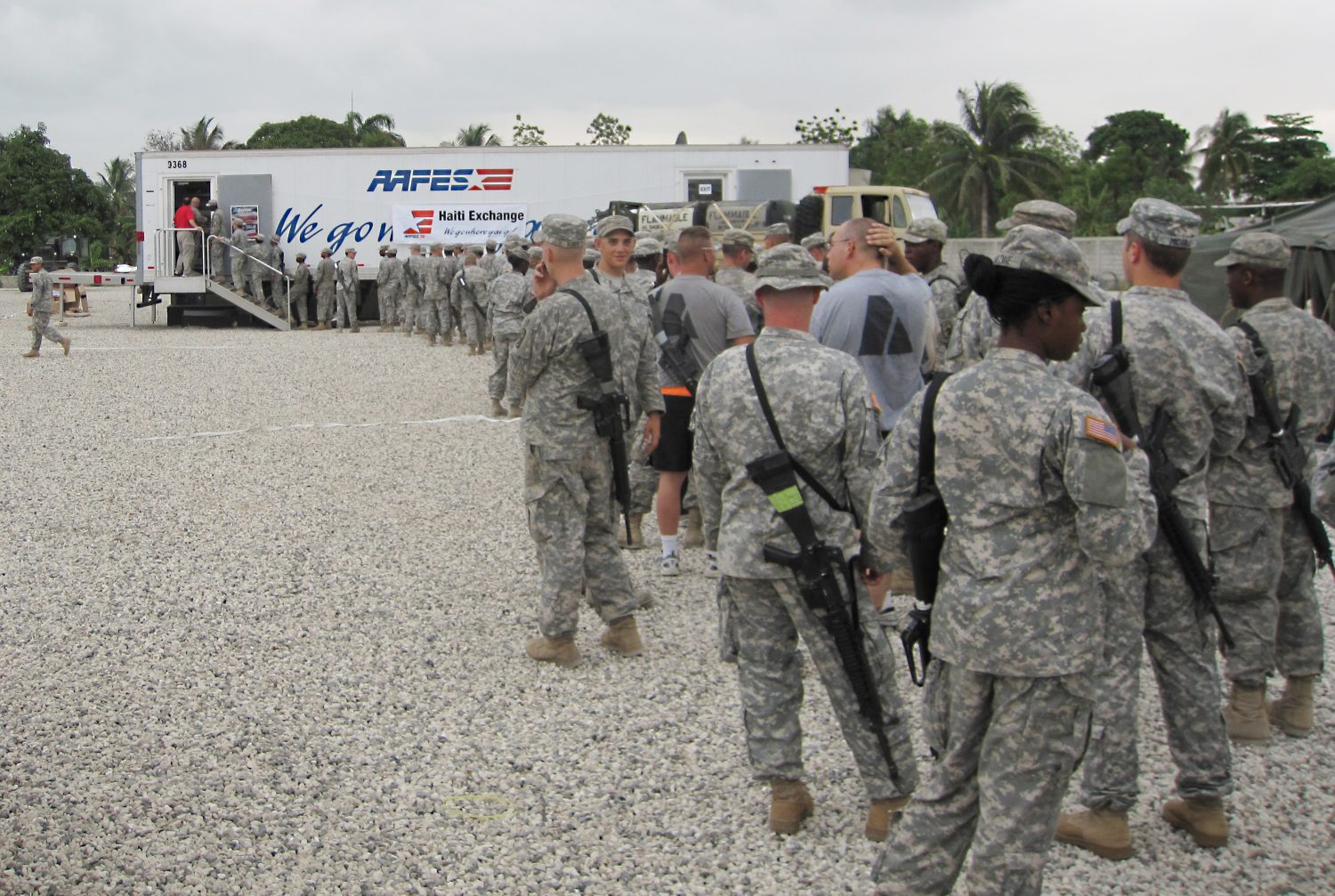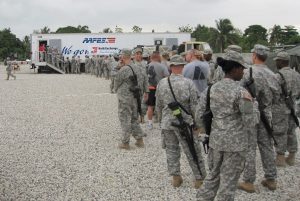#FlashbackFriday: How the Exchange Provided Support to Troops After the 2010 Haiti Earthquake

On Aug. 14, a 7.2 magnitude earthquake struck Haiti, killing thousands and affecting more than a million people, according to UNICEF. As devastating as this quake was, a 7.0 earthquake that hit the country on Jan. 12, 2010, saw deaths in the hundreds of thousands.

Soldiers supporting recovery efforts in Haiti after the 2010 earthquake line up at a mobile field exchange. Exchange associates set up two MFEs for Operation United Response—Haiti.
Nearly 7,000 U.S. troops were sent to Haiti to help with recovery efforts after the 2010 earthquake, and about a dozen Exchange associates deployed to the Caribbean nation to provide support for the troops.
In early March of that year, associates from throughout the continental United States and Puerto Rico traveled to Haiti to set up two mobile field exchanges for Operation United Response—Haiti. Associates lived there as the troops did, eating MREs and sleeping in crowded tents.
Back in CONUS, associates at Homestead Air Reserve Base and Patrick Air Force Base in Florida kept a Shoppette operating nonstop at U.S. Southern Command headquarters to support troops returning from Haiti or waiting to be deployed. Associates tripled the number of hours and quadrupled sales, working to keep shelves stocked with a storage room that was described by the SouthCom commander as “no bigger than a walk-in closet.”
The Exchange already had a history of providing support in Haiti. In 1994, the Exchange partnered with the Defense Commissary Agency (DeCA) to support more than 20,000 military personnel who were deployed for Operation Uphold Democracy, a military intervention to remove the military regime installed by the 1991 Haitian coup d’état that overthrew the elected President Jean-Bertrand Aristide. Early in the 21st century, Exchange associates returned to serve troops engaged in military interventions and humanitarian missions.
Sources: Exchange Post archives, Exchange history Flickr

